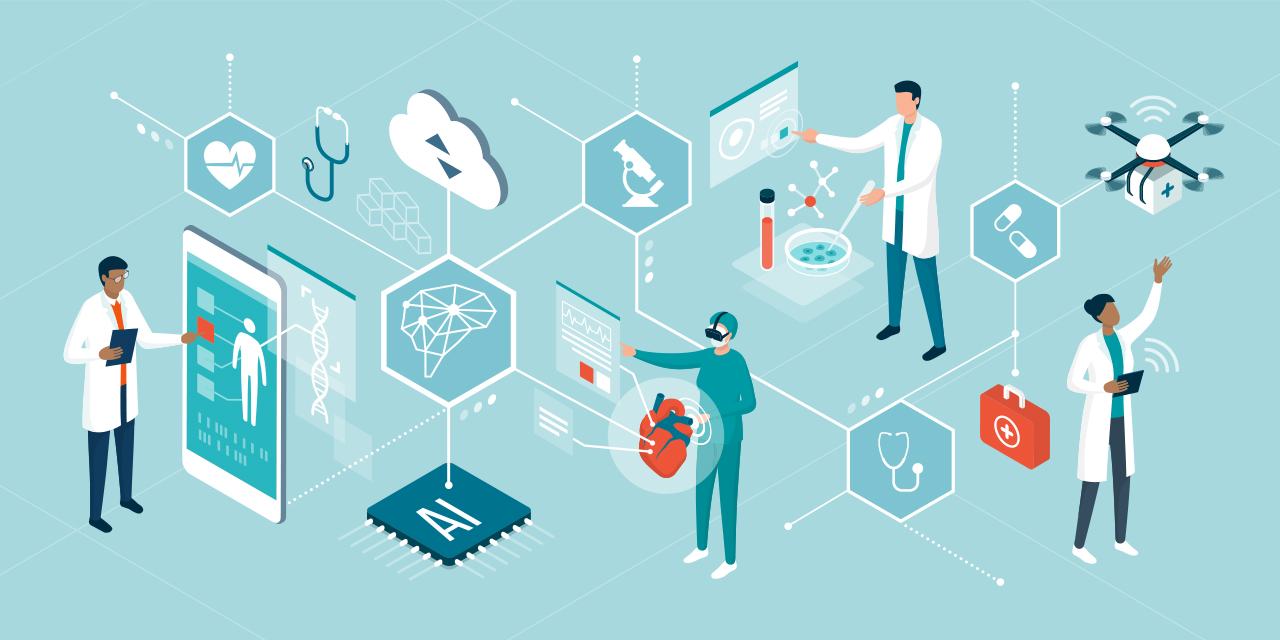 BACK
BACK

During this panel, industry experts (showed above) discussed the impact of COVID-19 on AI on Pharma. We’ve included a short transcription of the panel, beginning at 5:45 of the webinar.
Sandeep Burugupalli, Pfizer: So how has COVID impacted your work and increased the focus on AI? I think I'll take this one first then I'll hand it off to the others. For us at Pfizer, I say I used to have a day job. I used to focus on the strategic goals that we had at the beginning of the year. I think for us now with COVID, a lot of that has, not necessarily has dropped, but it's become deprioritized to focus on COVID and our efforts advancing either the vaccine or the antiviral work that we're working on.
Really my group has been coming in to provide almost that foundational understanding of what's going on and in real time trying to be able to keep up with what are the trends in the outbreak and what's happening in terms of the epidemiology. So how can we get a better understanding of the outcome predictors of either mortality or certain severity of conditions or things like that? So for us it's really been how can we use data now to get ahead of the curve in some ways of understanding what's going on with the disease?
We're using real-world data and trying to use, specifically in terms of AI, natural language processing, to be able to understand all the emerging literature that's coming out. There's a lot of great literature right now that hasn't been peer reviewed, for example. Can we extract information from many of the emerging literature today?
Many of you might be familiar with the COVID-19 data set that was released by The White House that consolidates about 50,000 articles and literature around COVID in the corona family of viruses and we're trying to use machine learning now to synthesize some of that information. I'll hand it off to the others on the panel to explain how covid may have impacted their work as well. Anyone can feel free to jump in.
Tatiana Sorokina, Novartis: I can build on your point, Sandeep, about using natural language processing. One of the questions that our team got at the beginning of the pandemic was what can we learn from the patients around the world about how pandemic is affecting their lives? Because if we understand how the pandemic affects their lives, then we understand how it affects the lives of the physicians who are treating them and therefore how it affects our well-being as a pharmaceutical industry.
So we've started looking at what people are talking about on social media and we currently have the capability to go into various different social media outlets and mine information about what kind of insights and sentiments patients and consumers are sharing about COVID-19 and where it's happening and then overlay that information with the information about where the major healthcare clusters are located. By looking at that overlap, we could sort of understand our opportunities, especially on the commercial front. Then we can understand how much our production and sales will be affected in different parts of the US and around the world and in what sequence.
This way we can be better prepared to educate and train our field force to start moving from the face-to-face to the virtual detailing. Also in overall support of the doctors about how COVID-19 is impacting their lives. We definitely believe NLP is a really good way of tracking that information, like you said, in real time and then overlaying it with other different data sources for actionable recommendations.
Sandeep Burugupalli, Pfizer: That's great. And that's it's really interesting to see you Novartis doing that kind of work. At GSK, Subroto, are you seeing similar things?
Subroto Mukherjee, GSK: Yeah, exactly as you mentioned. When this COVID started happening, we had to deprioritize our activities and prioritize based on our key initiatives and we had to pivot to a couple of key initiatives in the consumer healthcare space and vaccines are also doing the similar one where everybody is kind of working towards a quick vaccine solution. So I'm going to focus on the consumer health care side.
What we are right now focusing on is we have a lot of partners, which is very in demand. People are buying pantry loads. What we are seeing is a spike in all our products. We are out of inventory at many retailers. So what we are trying to do is predictive modeling in a better way so we understand the seasonal impacts to our current models so that our supply chain and our stocking can be easily defined. So we are working towards a predictive model which takes data from different sources. Social is one of them, as you mentioned, Tatiana.
We were trying to build that but it was very difficult because of the sudden spikes, which is once in lifetime. We are seeing a lot of anomalies there. So we are still figuring out which model can predict best so it can help get back to our business to figure out in the future so those are the key things. Also, a vaccine has been very deeply focused on that. We have some joint ventures already planned out to get a better vaccine now. GSK has a technology that has been quite popular and they have been giving it out to a few countries.
Learn more and watch the full video on YouTube: https://youtu.be/j3cxWQLcPe0
Recent Posts

How Machine Intelligence is Saving Lives
Artificial intelligence is improving healthcare and changing the lives of patients. In 2019, the AI...
By University of St. AugustineJune 25, 2020

The Top Use Cases of AI in Hospitals
Christopher Hutchins, Northwell Health System: I see a question with regard to significant AI use...
By Ai4June 05, 2020

How COVID-19 is Impacting the State of AI in Hospitals
During this panel, industry experts (showed above) discussed the impact of COVID-19 on AI on...
By Ai4June 05, 2020